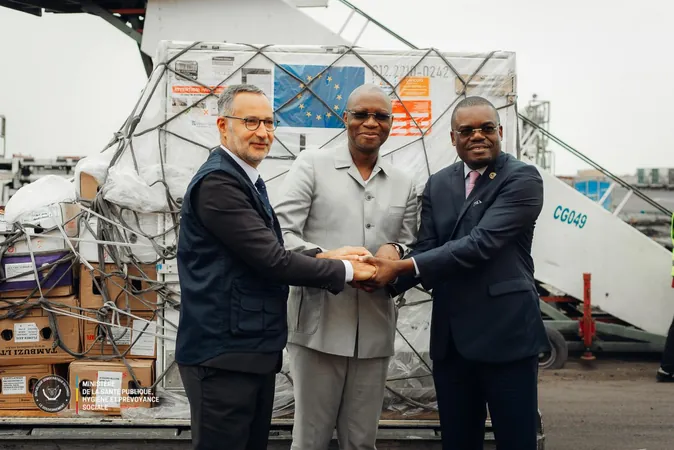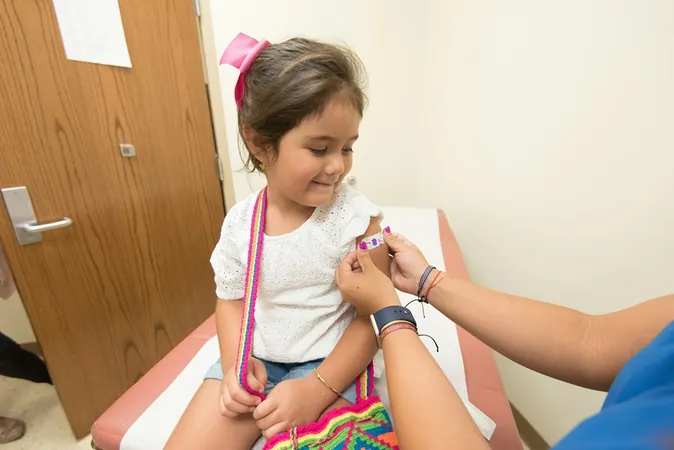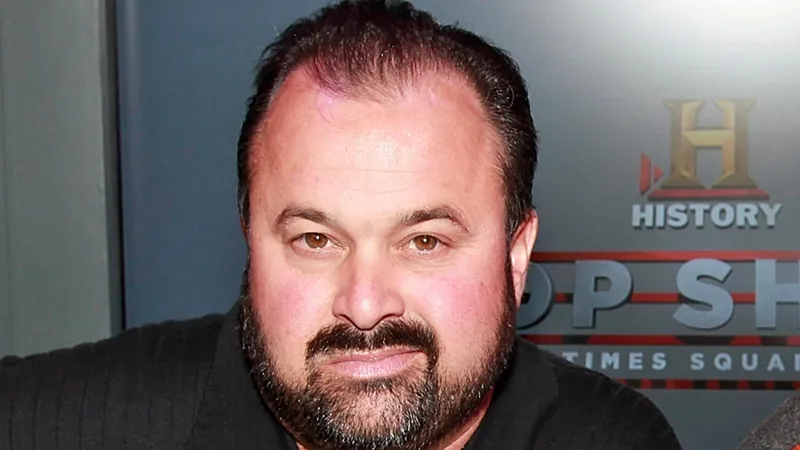
Two-Dose Strategy and Targeted Approaches Propel Mpox Campaign in the DRC – Africa CDC Raises Alarm
2024-10-11
Author: Jacob
Overview of the Mpox Campaign in DRC
The vaccination campaign against Mpox (formerly known as monkeypox) officially kicked off in the Democratic Republic of the Congo (DRC) on October 4, spearheaded by Africa CDC Director General Dr. Jean Kaseya. During the launch, Dr. Kaseya stressed the critical need for a two-dose vaccination regimen, stating, "While a single dose offers over 50% protection, we don’t want to compromise the health of our people."
Current Situation of Mpox in Africa
This campaign is particularly vital as the eastern city of Goma has been grappling with an alarming rise in Mpox cases. Notably, Ghana has emerged as the 16th nation to report incidents linked to the current outbreak, highlighting the growing threat of the disease across the continent. Surveillance efforts are lagging, with testing and positivity rates hitting 47% and 43%, respectively. Dr. Kaseya pointed out, “Some countries report suspected cases, but without testing, we can’t confirm them or classify outbreaks,” underscoring the urgent need for improved health protocols.
Challenges in Controlling the Outbreak
Contact tracing remains a significant hurdle in controlling the outbreak. Despite aiming to trace 90% of contacts, only about 4% have been successfully reached so far, exposing the shortcomings in healthcare surveillance systems. Dr. Kaseya, in his recent media briefing, shared that the financial backing for combating Mpox has now surpassed $600 million, almost doubling its initial funding goal outlined in the continent's response plan.
Prioritization of At-Risk Groups
The campaign in the DRC is prioritizing not just confirmed cases but also several at-risk groups, including healthcare workers, sex workers, and children in vulnerable regions. The high-risk status of truck drivers—who frequently cross borders—reinforces the imperative for enhanced border surveillance, especially along the Northern Corridor that links Kenya, Uganda, Rwanda, Burundi, Eastern DRC, Tanzania, and Zambia.
Testing and Response Challenges
Dr. Kaseya also urged that insufficient testing should not hinder response efforts. "We cannot rely solely on confirmed cases for decision-making and response," he asserted. Challenges such as sample collection, laboratory capacity, and equipment quality impede testing, yet Africa CDC is actively pursuing improvements.
Impact of Mpox on Children and Future Research
Alarmingly, the impact of Mpox appears to be disproportionately affecting children under 15, a situation exacerbated by high levels of malnutrition. Dr. Kaseya warned that the virus's mutations complicate control efforts, creating "many outbreaks in one" scenario. He added a note of urgency regarding the potential for mother-to-child transmission, although more extensive research is needed to fully understand this risk. The epidemiology of Mpox remains poorly understood, making research a crucial element in the ongoing fight against this public health crisis.
Conclusion and Call for Action
With the outbreak showing no signs of abating, the need for comprehensive measures and immediate action to protect vulnerable populations has never been clearer.









 Brasil (PT)
Brasil (PT)
 Canada (EN)
Canada (EN)
 Chile (ES)
Chile (ES)
 España (ES)
España (ES)
 France (FR)
France (FR)
 Hong Kong (EN)
Hong Kong (EN)
 Italia (IT)
Italia (IT)
 日本 (JA)
日本 (JA)
 Magyarország (HU)
Magyarország (HU)
 Norge (NO)
Norge (NO)
 Polska (PL)
Polska (PL)
 Schweiz (DE)
Schweiz (DE)
 Singapore (EN)
Singapore (EN)
 Sverige (SV)
Sverige (SV)
 Suomi (FI)
Suomi (FI)
 Türkiye (TR)
Türkiye (TR)